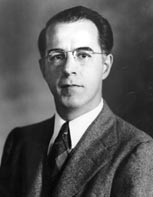 |
 |
|
 |
 |
 |
 |
 |
|
 |
 |
 |
 |

The Arthur K. Parpart Lectureship
7/07/10 - 4:00 PM, Lillie Auditorium
"Multi-sensory Mechanisms of Cell Matrix Adhesion"
Benny Geiger, Weizmann Institute of Science, Israel
Prof. Benjamin Geiger focuses on the mechanisms responsible for communication between cells, both normal and cancerous. He is attempting to identify and trace the specific molecules involved in cell-cell recognition and communication, and to investigate those molecules that mediate such interactions. Over the years, he and his group discovered many of the basic mechanisms involved in the cell’s interaction with its surroundings, and in the environmental regulation of cell activity and fate. Particular attention is given to the aberrant communication of cancerous cells. Prof. Geiger’s research has yielded several patents that are currently implemented by industry for the development of a new glaucoma therapy, as well as a novel type of automated cell imaging system.
Prof. Geiger conducted his undergraduate studies at Tel Aviv University, his M.Sc. studies at the Hebrew University of Jerusalem and, in 1977, he was awarded a Ph.D. degree from the Weizmann Institute of Science. That same year, he was granted a Chaim Weizmann Fellowship, and began postdoctoral research at the University of California at San Diego. In 1979, Prof. Geiger returned to Israel and joined the Weizmann Institute’s Department of Chemical Immunology. Four years later, he was appointed Associate Professor and in 1988, Full Professor. Prof. Geiger chaired the Board of Studies in Biology at the Institute’s Feinberg Graduate School, and later served as its Dean (1989-1995). He headed the Institute’s Department of Molecular Cell Biology from its establishment in 1995, until 2003. From 2003 to 2009, he served as Dean of the Faculty of Biology. With the establishment of the Clore Center for Biological Physics in November 2000, he was designated its Director, and served in that position until October, 2009. In March 2007, he also became the first Director of the Kirk Center for Childhood Cancer and Immunological Disorders, a post he held until recently. Prof. Geiger is the incumbent of the Professor Erwin Neter Chair in Cell and Tumor Biology.
On the Israeli national scene, Prof. Geiger has played a leading role in the planning and implementation of new programs in science and technology education and is actively involved in the promotion of art and culture. From 2002 to 2009, he chaired the Life Sciences and Medicine Division of the Israel Science Foundation, the primary research funding foundation in Israel. In October, 2009, he was appointed Chair of its Academic Board. His professional affiliations and assignments include elected membership in the European Molecular Biology Organization, Board Member of the European Cell Biology Organization and, from 1992 to 1996, President of the Israel Cell Biology Organization and the Israel Society for Microscopy. He is also a member of the European Cytoskeletal Forum, serving as its President from 2001 to 2005. Prof. Geiger is married to Selly and has 3 children: Anat (1974), Tami (1976) and Avner (1982).
 |
 |
About the Arthur K. Parpart Lectureship
The Arthur K. Parpart Lectureship was established by Dr. Joseph F. Hoffman in memory of Dr. Parpart’s distinguished career as a devoted teacher and able investigator.
Dr. Parpart’s interest in the natural sciences began during his early years as an undergraduate student at Amherst College. Although his research over the years encompassed a wide range of subjects, his main concern was the physiology of the red blood cell, in particular the physiological and biochemical architecture of its cell membrane.
In 1931, Dr. Parpart accepted a faculty position at Princeton University shortly after receiving his Ph.D. from the University of Pennsylvania. In 1948, he was elevated to chairman of Princeton’s department of biology, a position he occupied until his sudden death in 1965.
Each June, Dr. Parpart transported his laboratory to Woods Hole where he spent summers doing research at the MBL. For more than ten years, he was a faculty member of the MBL’s Physiology course; in 1963, he was elected president of the laboratory.
Widely known for his work in physiology and biochemistry, Dr. Parpart made a vital contribution to medical science during World War II, by directing a top-priority research project, which succeeded in lengthening the time human blood can be stored from three days to a maximum of forty days.
The career of Arthur K. Parpart was a notable one in all respects. He was a productive scientist, a vigorous and preserving leader, and a man who engendered the respect and friendship of scores of students and colleagues.
|
| |
  |
|
 |
 |
|